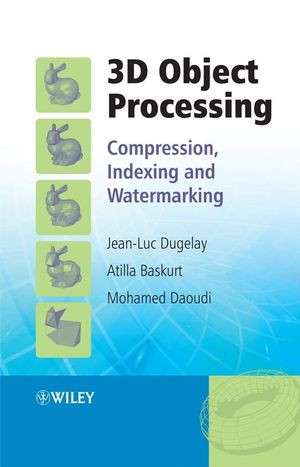

Most ebook files are in PDF format, so you can easily read them using various software such as Foxit Reader or directly on the Google Chrome browser.
Some ebook files are released by publishers in other formats such as .awz, .mobi, .epub, .fb2, etc. You may need to install specific software to read these formats on mobile/PC, such as Calibre.
Please read the tutorial at this link: https://ebookbell.com/faq
We offer FREE conversion to the popular formats you request; however, this may take some time. Therefore, right after payment, please email us, and we will try to provide the service as quickly as possible.
For some exceptional file formats or broken links (if any), please refrain from opening any disputes. Instead, email us first, and we will try to assist within a maximum of 6 hours.
EbookBell Team

4.8
84 reviewsWritten by expert contributors, this timely text brings together the three important and complementary topics of compression, retrieval and watermarking techniques for 3D objects. 3D object processing applications are developing rapidly and this book tackles the challenges and opportunities presented, focusing on the secure transmission, sharing and searching of 3D objects on networks, and includes:
3D Object Processing: Compression, Indexing and Watermarking is an invaluable resource for graduate students and researchers working in signal and image processing, computer aided design, animation and imaging systems. Practising engineers who want to expand their knowledge of 3D video objects, including data compression, indexing, security, and copyrighting of information, will also find this book of great use. Content:
Chapter 1 Basic Background in 3D Object Processing (pages 5–43): Guillaume Lavoue
Chapter 2 3D Compression (pages 45–86): Guillaume Lavoue, Florent Dupont and Professor Atilla Baskurt
Chapter 3 3D Indexing and Retrieval (pages 87–138): Stefano Berretti, Mohamed Daoudi, Alberto Del Bimbo, Tarik Filali Ansary, Pietro Pala, Julien Tierny and Jean?Phillippe Vandeborre
Chapter 4 3D Object Watermarking (pages 139–183): Jihane Bennour, Professor Jean?Luc Dugelay, Emmanuel Garcia and Dr Nikos Nikolaidis